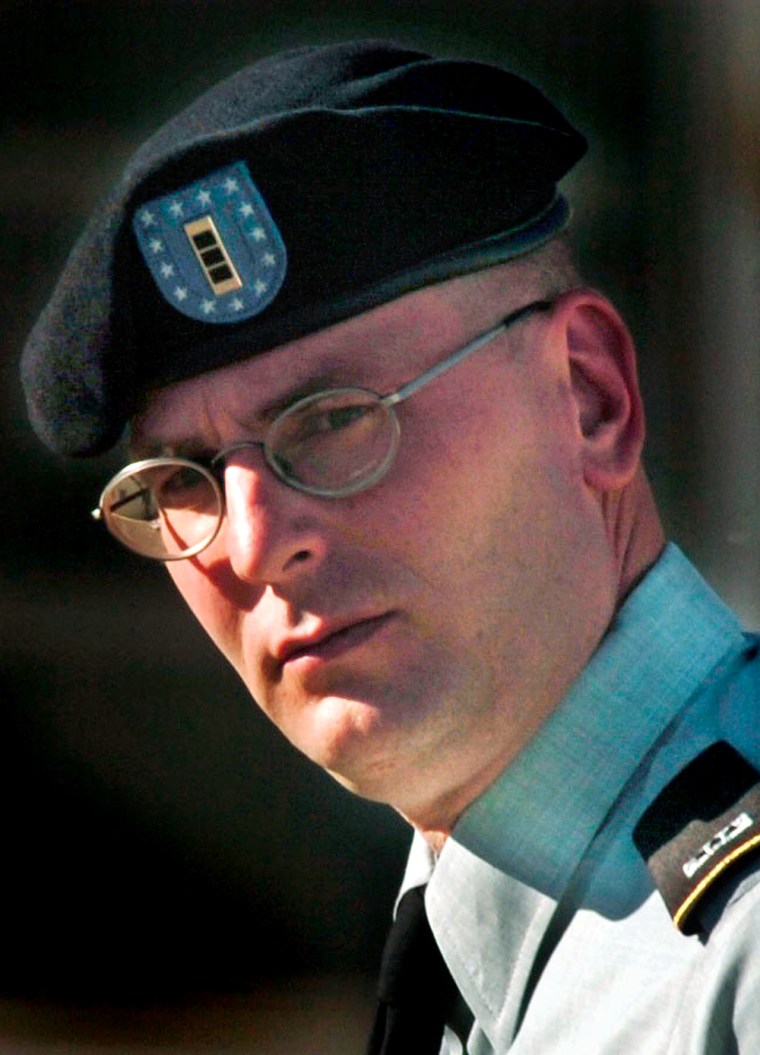An Army officer charged in the death of an Iraqi general during interrogation suggested guidelines for questioning detainees were being broken “every day” in Iraq, a witness testified late Wednesday at the officer’s court-martial.
The witness, who testified from behind a screen to cloak his identity from the public, said he spoke with Chief Warrant Officer Lewis Welshofer Jr. on Nov. 25, 2003, the day before Maj. Gen. Abed Hamed Mowhoush’s death at an Iraqi detention camp.
The witness said he asked Welshofer if he was aware of a recent memorandum from Welshofer’s commanding general that required prior authorization for the use of certain interrogation techniques.
“He said he was aware of them, but said he was pretty sure they were breaking those rules every day,” the witness said.
Prosecutors said Mowhoush was placed headfirst in a sleeping bag and bound with an electrical cord for interrogation, and that he died while Welshofer sat on his chest, occasionally using his hands to cover Mowhoush’s mouth.
Under pressure?
Welshofer is charged with murder and dereliction of duty. His attorneys have argued he did nothing illegal and was using a technique approved by his commander.
The memo dated Oct. 12, 2003, did not mention stress techniques such as the sleeping bag position but said anything not in the memo required approval, according to the witness. Welshofer’s commander has said she would not have approved the sleeping bag technique to be used the way it was against Mowhoush.
The defense contends Welshofer was under pressure to get information from Mowhoush and that the Iraqi died not of asphyxia, as the Army’s autopsy report said, but from an irregular heart rhythm caused by heart disease and the stress of interrogation.
Under defense questioning, the secret witness — whose identity is classified — conceded he did not witness any rules being broken.
“What Chief Welshofer told you could have been just a flippant remark, right?” Spinner asked.
“Yes,” the witness replied.
“So you have no personal knowledge that any rules were being violated?” Spinner said.
“No,” said the man, adding that while he was alarmed by Welshofer’s comment he didn’t report it to commanding officers.
